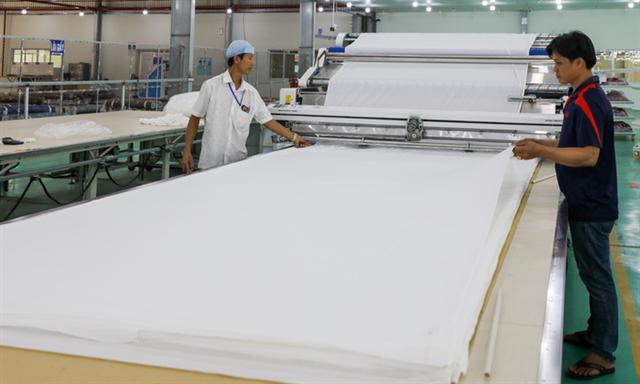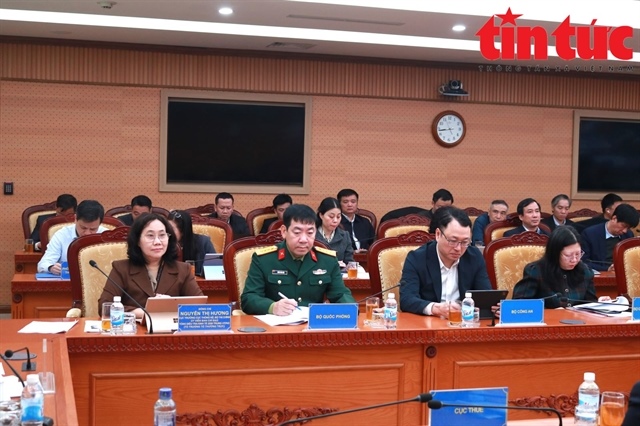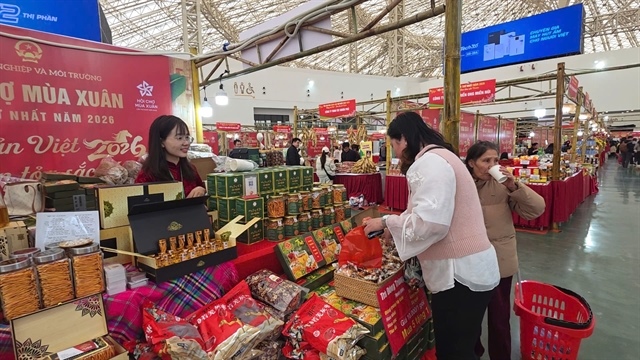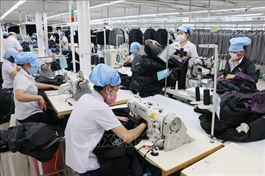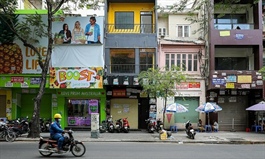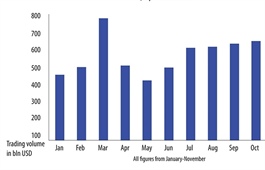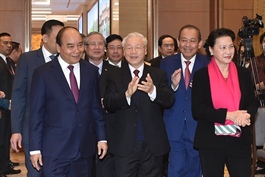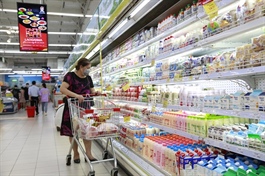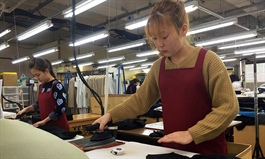Vietnam, UK sign free trade deal ahead of Brexit
Vietnam, UK sign free trade deal ahead of Brexit
Vietnam and the U.K. signed a bilateral free trade pact Tuesday to maintain their existing relationship once the Brexit transitional period ends on December 31.
Workers at a textile factory in Vietnam's southern province of Long An, February 2020. Textile is on the list of industries expected to benefit from the new free trade deal between Vietnam and the U.K. Photo by VnExpress/Quynh Tran.
|
The Vietnam - U.K. Free Trade Agreement (UKVFTA) was signed in London at 9 p.m. Tuesday, Hanoi time.
Because of Covid-19, the Vietnamese government representatives and the Minister of Industry and Trade Tran Tuan Anh had not been able to be present to sign the deal, and the two governments have authorized the ambassadors for the mission.
The bilateral deal will take effect from 11 p.m., December 31.
It locks in the benefits of both countries’ existing trading relationship under the EU-Vietnam FTA that took effect August 1, eliminating 99 percent of import duties for both parties after seven years.
With the U.K. leaving the European Union, its rights and obligations under the EVFTA will cease to apply after December 31, 2020.
Under the UKVFTA, the U.K. will abolish import taxes on 99.2 percent of tariff lines within six years, equivalent to 99.7 percent of export turnover of Vietnam to the country.
While the EU has committed to giving Vietnam a tariff rate quota (TRQ) with an import tax of 0 percent for some products, the U.K. said it will consult EU statistics on bilateral trade between Vietnam and the U.K. in the 2014-2016 period to come up with a similar policy. The U.K. also commits to review and increase the TRQ amount for Vietnam's rice products after three years from the day the UKVFTA takes effect.
Export industries expected to benefit greatly from this agreement include seafood, rice, textiles, wood, vegetables and footwear.
In return, Vietnam will remove 48.5 percent of tariff lines, accounting for 64.5 percent of import turnover as soon as the agreement comes into effect. After six years, 91.8 percent of tariff lines will have been abolished, equivalent to 97.1 percent of the import turnover, and this will further increase to 98.3 percent of the tariff lines (accounting for 99.8 percent of the turnover).
In addition, the agreement also includes commitments on rules of origin, customs and trade facilitation, food hygiene and safety measures, and on technical barriers to trade and services, investment, trade defense, competition, state-owned firms, government procurement, and intellectual property.
The Ministry of Industry and Trade said earlier this month that Vietnam will have more competitive advantages compared to countries like China, India, Thailand, Malaysia and Indonesia, who are not likely to conclude trade agreements with the U.K. for years to come.
Vietnam will also have more opportunities for cooperation, investment, technology transfer, and attracting British tourists as the Covid-19 pandemic is contained. The conclusion of negotiations today also sends a positive message about the relationship between Vietnam and the U.K. as the two countries celebrating 10 years of their Strategic Partnership Agreement, it said.
Industry-Trade Minister Anh and U.K. International Trade Secretary Elizabeth Truss had signed a joint ministerial statement on the conclusion of the free trade pact negotiations on December 11 after two years of discussion.
The U.K. is currently Vietnam’s third largest trading partner in Europe after Germany and the Netherlands.
Data from the General Department of Customs showed that the total import-export turnover of the two countries reached $6.6 billion last year, of which exports stood at $5.8 billion and imports $857 million. In the period 2011-2019, the growth rate of Vietnam - U.K. bilateral import and export turnover increased by an average of 12.1 percent each year.


